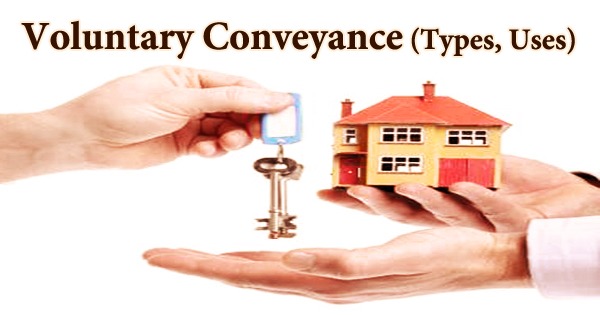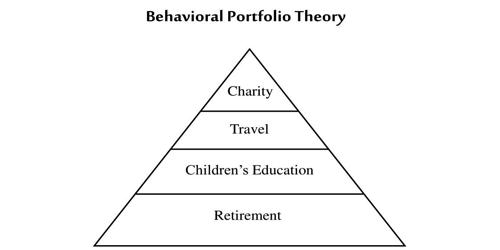The intended transfer of a title to a property from one individual to another by a deed is known as voluntary conveyance. The term “consideration” refers to the monetary compensation that is expected in exchange for the property. The conveyor should be prepared to provide a legal reason for the transfer if it does not have it. At the point when such an exchange happens without sufficient thought of the transport, the first proprietor who will make the exchange should be ready to clarify the exchange. The clarification should be perceived by the general set of laws with locale over the area of the property.
The voluntary conveyance is a sort of voluntary transfer of property, just like any other real estate transaction. Voluntary conveyance is distinguished by the lack of proper consideration given to the seller. Thought is a legitimate term that alludes to the remuneration given in return for the property being referred to. Deliberate transport can be utilized to stay away from default, for magnanimous purposes, deceitful purposes, and movement to relatives.

The following is a common volunteering scenario:
- Certain delinquent borrowers may willingly forward the property to the lender to avoid default and the negative impact it has on the borrower’s credit history. The lender can accept title conveyance and sell the property afterward.
- The applicant may subsequently be able to file an insurance claim to recover any outstanding defects, depending on local restrictions. In making such a conveyance, the creditor removes the stigma of default.
The legal process of transferring property or other fixed assets from one owner to another is referred to as conveyance. This form of ownership transfer can be divided into five categories:
- Voluntary conveyance
- Involuntary conveyances
- Transfer by will
- Transfer by-laws of succession
- Transfer by accession
In many wards, offer of the property to an outsider is unlawful to keep away from claims on that property by lenders. This is known as a false transport, and banks can utilize common official procedures to protect their case to the land. Some delinquent borrowers will willingly surrender their property to the lender in order to avoid default and the negative consequences it will have on their credit history. The lender can accept the title transfer and then sell the property.
The loan specialist may then reserve the privilege to record a protection case to recuperate any excess lack, contingent upon nearby laws. In making such a movement, the borrower evades the stigma of default. The severity of the penalty is determined by whether the court finds the fraud to be actual, malevolent, or constructive, which characterizes a de facto fraudulent transaction. There are three different types of voluntary conveyance:
- Public grant: Publicly-owned land is transferred to a private individual.
- Private grant: Privately-held land is transferred to an individual.
- Public dedication: Privately held land is transferred to the government or a government-run organization.
Voluntary conveyance can be used in the following situations:
Avoiding default: Consider the case of a borrower who is going to fail on their loan. The borrower may surrender their interest in real property to the lender in order to avoid a negative impact on their credit history. To recoup their funds, the lender can accept the title conveyance and sell the property. Before a home loan organization thinks about this choice, the borrower should attempt to sell the property at its honest evaluation for something like three months.
Charitable purposes: Donors frequently provide real estate to nonprofit organizations. They must carefully manage the consideration issue in this scenario. Consideration comes in the form of a tax deduction when suitable safeguards are in place.
Conveyance to descendants: Many people leave their property to their descendants as a gift or through a gift deed in their last will and testament. A tiny monetary donation or simply love and affection might be considered consideration. In circumstances when creditors are seeking custody of the property to satisfy their claims, however, such a gift may be questionable.
Fraudulent purposes: Sometimes voluntary conveyances are done with the goal of obstructing, delaying, or cheating a creditor. In most circumstances, selling a property to a third party with the objective of avoiding a creditor’s claim on that property is considered illegal. Fraudulent conveyance is the term for this type of transaction.
A few roads, like common judicial actions, are accessible to loan bosses that can empower them to guard their case to a specific property. Under common cases, the court may arrange the litigant to suffer consequences in circumstances where the exchange is administered to be a de factor false exchange. It occurs when the court determines that the deception is genuine, malicious, or constructive.
The transfer of real property without the owner’s consent is known as involuntary conveyance. Condemnation due to negligence or natural disaster, failure to pay taxes, or the death of a property owner with no immediate successors are all examples of this. Divorce decrees, condemnation due to negligence or natural disaster, failure to pay taxes, asset seizure in the event of financial default, and so on are common examples. When a property owner dies without having any direct heirs, the state takes possession of the property.
Information Sources:
















